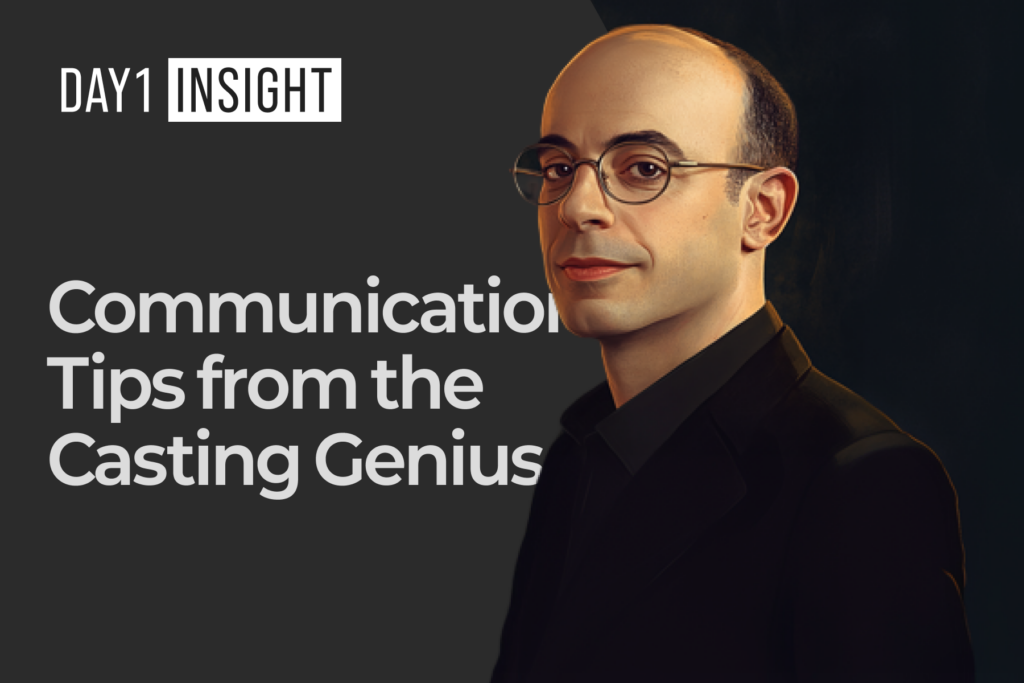The Prepared Win Over Bernard Werber

It all started when FastCampus received an inquiry from the publishing house, Open Books, asking if they could launch a writing course featuring none other than the renowned author, Bernard Werber.
For K, the content planner at FastCampus, this offer couldn’t have come at a better time. K had been diligently preparing to launch a new “writing” category, and securing a top-tier speaker was crucial for success. And at the top of K’s list? Bernard Werber himself.

K felt the kind of thrill you’d get if your crush confessed first. But when things seem to be going too smoothly, it’s wise to remain cautious. Werber’s lecture proposal wasn’t exclusive to FastCampus—other adult education companies had received it too. The deal was far from closed, and they had to come up with a highly competitive offer.
Luck and Timing Matter—But Preparation Matters More
At FastCampus, securing speakers is a meticulous process. Instead of sending out lazy cold emails to a long list of names, the team creates in-depth research and personalized proposals for each speaker. When dealing with someone as renowned as Werber, thorough preparation and seamless communication are crucial.
By the time Open Books reached out, FastCampus had already finished preparing its proposal for Werber, and the internal discussion was practically over. With a solid rationale outlining why FastCampus was the perfect platform for his course, the proposal was sent back immediately. The quick turnaround and comprehensive preparation impressed the publishing team. After all, which professional wouldn’t appreciate working with an organization that’s this prepared? Werber’s course didn’t just “fall into their lap”—it was a triumph of thoughtful preparation and execution.

The Art of Communication
Clearing the hurdle of securing a speaker doesn’t mean smooth sailing. Particularly with writing courses, content approval involves multiple parties—the author, the publishing house, and often the author’s agency. As a content planner, you need to be a conductor, coordinating all the moving parts. And most importantly, you must be laser-focused when communicating with the speaker. Building rapport and ensuring they give their best to the course ultimately determines its quality.
Changer says
“Every weekend, I read the books of authors I want to work with. I try to read as much as I can and understand their worldview. If I can’t read all their works, I go through every interview and piece of media about them.”
Considering the time it takes to read a single book, you can imagine how much effort it takes to go through an author’s body of work. It’s a laborious process, but one with a clear purpose. As K digs through the author’s work, recurring themes emerge. These keywords become invaluable for communication, allowing K to connect with the author on a deeper level by reflecting their ideas back to them.
Everyone wants to work with people who understand them—especially writers.

SMALL TALK, BIG IMPACT
Given that FastCampus’s content involves on-site filming, there’s a surprising amount of casual communication involved—right down to choosing lunch menus. These may seem insignificant, but K has developed a strategy even for this.
Changer says
“When lunchtime comes and you ask, ‘What would you like to eat?’ most speakers will feel pressured and say, ‘I’m fine with anything.’ So, instead of asking at lunch, I casually bring it up in the morning—like, ‘Do you like spicy food? I can handle spice, but I’m not a fan of fishy flavors.’ That way, they open up, and we quickly decide on lunch.”
This tactic isn’t just about ordering food.
The quality of a course depends on the speaker’s energy and mood on the day. A speaker who feels good may offer more insights than planned. Attention to small details like this shows a level of care that sets K’s communication skills apart.
Even Failed Negotiations Can Be Valuable
Despite K’s excellent communication skills, there have been times when they didn’t even get a meeting. They’ve waited outside TV studios, chased down managers, and sometimes received no reply at all.
Negotiating with speakers can often feel like a game of luck—sometimes 90% luck and 10% skill. But results aren’t the only thing that matters; the process does too. The lessons and relationships built during failed negotiations often lead to future success.
Changer says
“I once tried to secure a very popular drama writer for a course. I sent five emails over several months and didn’t get a response. Then, one day, I received a reply longer than all of my emails combined. It was a rejection, but the writer explained all the reasons they couldn’t take on the course. That email gave me valuable insight into the challenges writers face when considering public-facing lectures.”
K took these insights into future negotiations, anticipating concerns and addressing them upfront. As a result, more and more writers, despite logistical challenges, agreed to teach courses.
The Content Planner’s Game
Changer says
“Securing a speaker isn’t just about the planner’s ability. It depends on the company’s reputation and many other factors. But once the speaker is on board, the rest is entirely up to the planner. It’s up to us to ensure the speaker delivers their best.”
A content planner can’t control every factor in securing a speaker. Often, the company’s brand matters more than the planner’s individual talent. That’s why FastCampus CEO Shin Hae-dong sometimes makes the initial contact with high-profile speakers. But even with that support, the rest is the planner’s game—ensuring everything runs smoothly and preparing for all the variables beyond their control.
This attitude isn’t just relevant to planners or negotiators—it’s a mindset that anyone working in a team should adopt. Success often depends on how well we communicate and collaborate with others.
✍️ Key Takeaways:
- Negotiations depend on uncontrollable factors like luck and timing, so thorough preparation is essential. You never know when an opportunity will arise.
- Learn everything you can about your target—this knowledge will enhance your communication and negotiation.
- Small, thoughtful interactions can have a big impact. Paying attention to details can make all the difference in building rapport.
- Even when negotiations fail, sincere effort can yield valuable feedback that improves your approach next time.